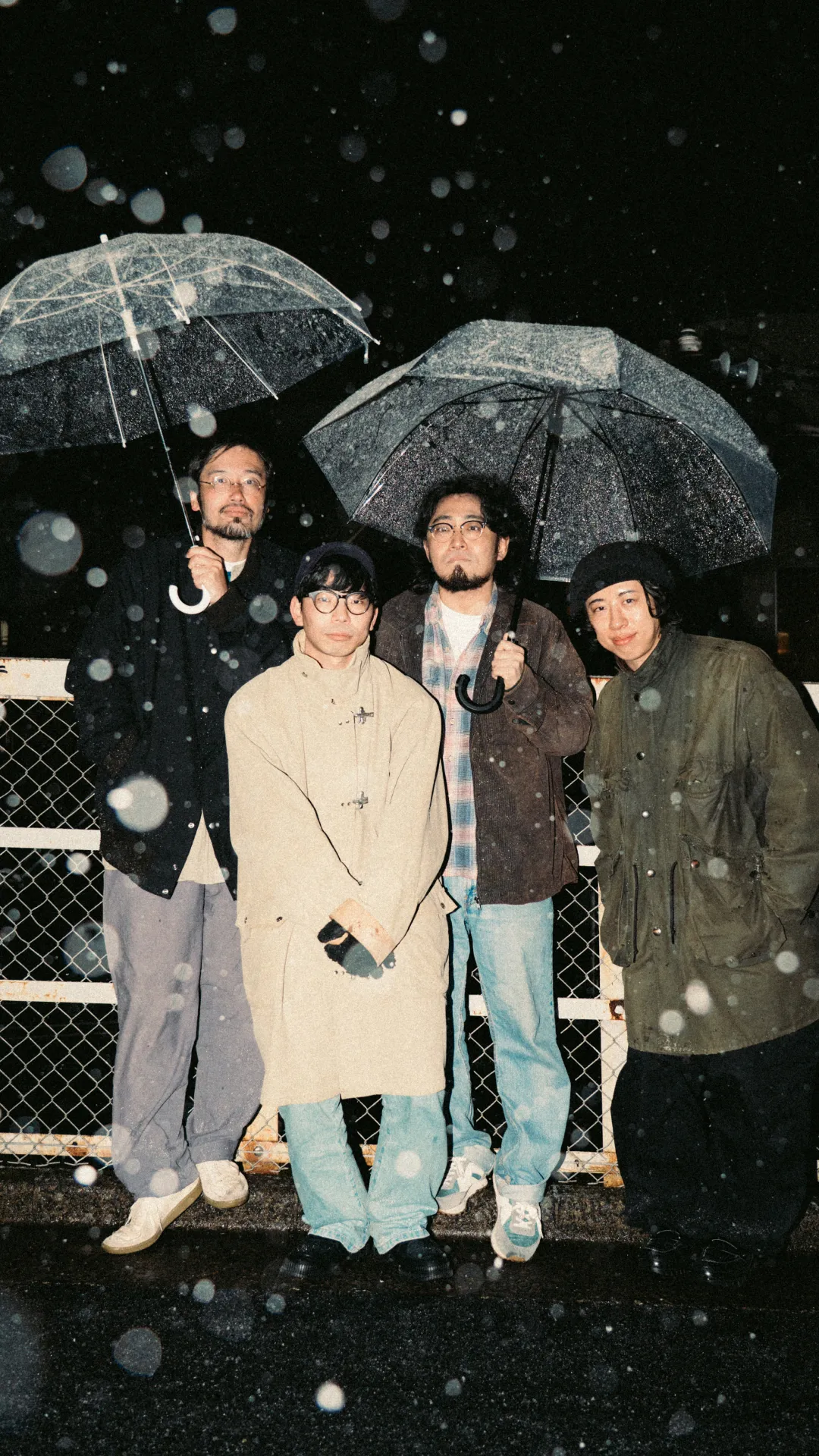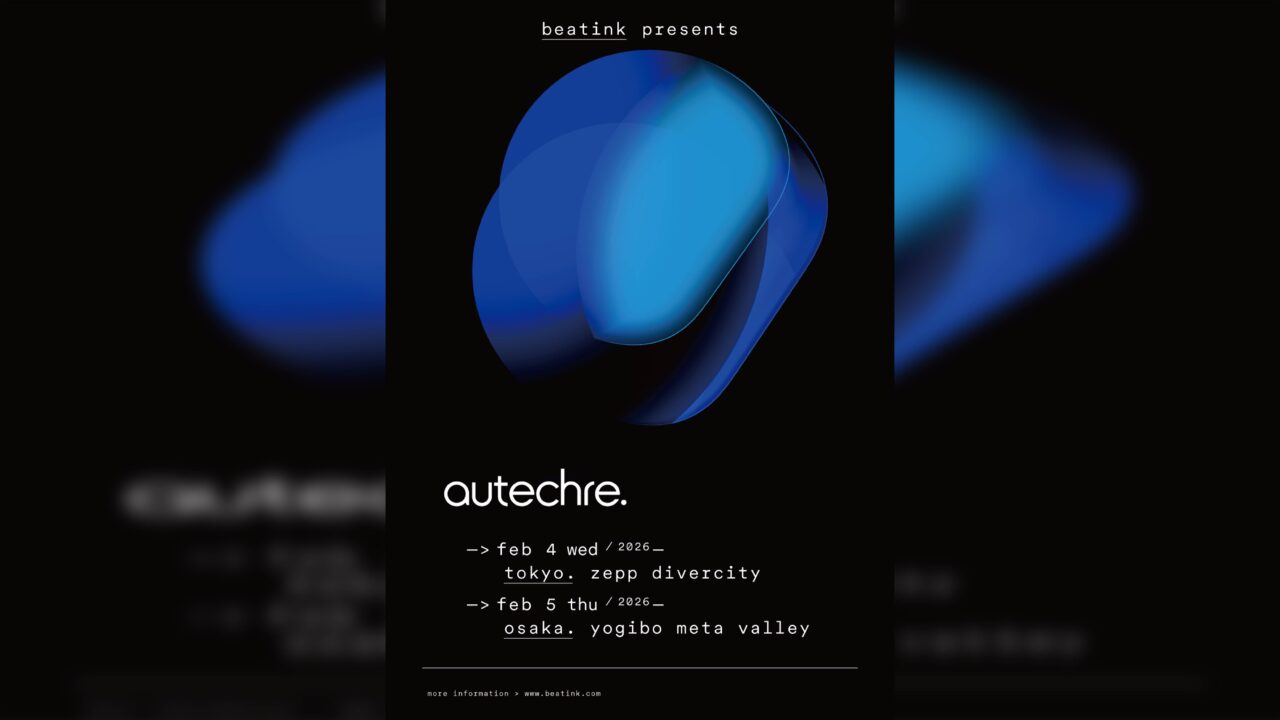Hailing from Hokkaido, ZOOKARADERU—a dynamic three-piece guitar rock band—celebrates their 10th anniversary this year. One of their iconic tracks, “Tomodachi no Uta (Friends Song),” has been a constant presence in their live performances since day one, and was recently released as a digital single on February 19th.
While the music video, set against a breathtaking snowy backdrop, makes a lasting impression, the story doesn’t end there. The song has sparked the creation of a short film titled Winter Morning (Fuyu no Asa), directed and written by the talented Rikiya Imaizumi, known for his works like Love, at Least and On the Edge of Town. This marks his return to original scripts since At the Window.
The film delves into the delicate and often unspoken dynamics between three complex characters—Tanebe (Shion Sasaki), Miho (Shion Naito), and Sakai (Taro Uchibori)—through raw performances and dialogue that captures both the humor and intensity of their relationships. At just 40 minutes, this work is infused with Imaizumi’s signature touch, expanding the emotional world of “Tomodachi no Uta” in ways that transcend its lyrics.
As ZOOKARADERU and Imaizumi sit down for a conversation, their discussion reveals the core of their creative minds, exploring human connections and the depths of artistic expression.
INDEX
Winter Morning: Imaizumi’s Signature Style in an Original Screenplay
How did Director Imaizumi get involved with this project?
Yoshida (Vo/Gt): To put it simply, we decided to take the bold step and approach him. We didn’t fully grasp the challenge, so we just thought, “Why not ask him?”
Yamagishi (Dr): It’s our 10th anniversary.
Washimi (Ba): I honestly thought, “There’s no way he’ll be available, he’s probably too busy” [laughs]. But “Tomodachi no Uta” is a track we’ve been performing live for years. There’s this image of us on stage facing the audience, and when the song is released, it’s no longer confined to just live shows – it starts connecting with all sorts of different scenes. So, when we heard that Director Imaizumi was going to turn “Tomodachi no Uta” into a film, we became really curious about what kind of human dynamics he’d depict.
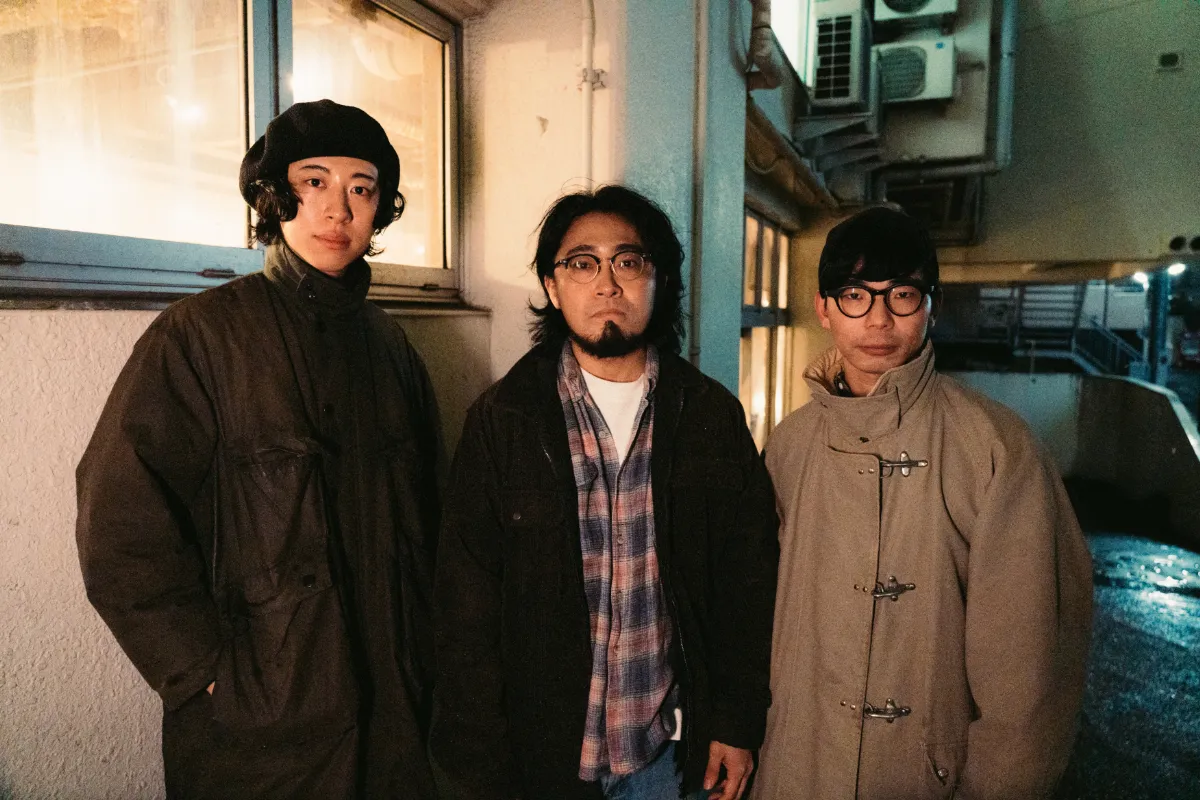
A three-piece rock band from Sapporo. Formed in 2015, they solidified their current lineup in March 2018, and will celebrate their 10th anniversary in 2025. They released the digital single “Tomodachi no Uta” on February 19.
Imaizumi: So that’s how it all came about. I got a message from the staff, but I couldn’t help wondering how my name even entered the conversation.
Was the request specifically for a film rather than a music video?
Imaizumi: Initially, they asked for a short film, around 15 minutes long. My daughter had introduced me to Zutto Mayonaka de Ii no ni., so I was familiar with their music, but I wasn’t sure if I was the right person for the job. But once I listened to the song, all sorts of ideas started flowing. Within a few days, I had a rough outline. The first thing that surfaced was a certain atmosphere—a mix of emotions, including a touch of pain—and I built the story from there.
This story really has Imaizumi’s signature touch.
Imaizumi: I felt that people caught in uncertain situations might find comfort in this song. The lyrics mention “one and one,” but I thought the story would resonate more if it involved three people instead of just two. As I explored that idea, it kept taking shape. Then, in our second meeting, they casually mentioned, “Oh, by the way, this song is actually about the relationship between a band and its audience at a live house” (laughs). By then, I had already written the script exactly how I wanted, so I started second-guessing things. If Tomodachi no Uta captured relationships in their purest form, Winter Morning might feel more muddled, a bit messier in comparison.
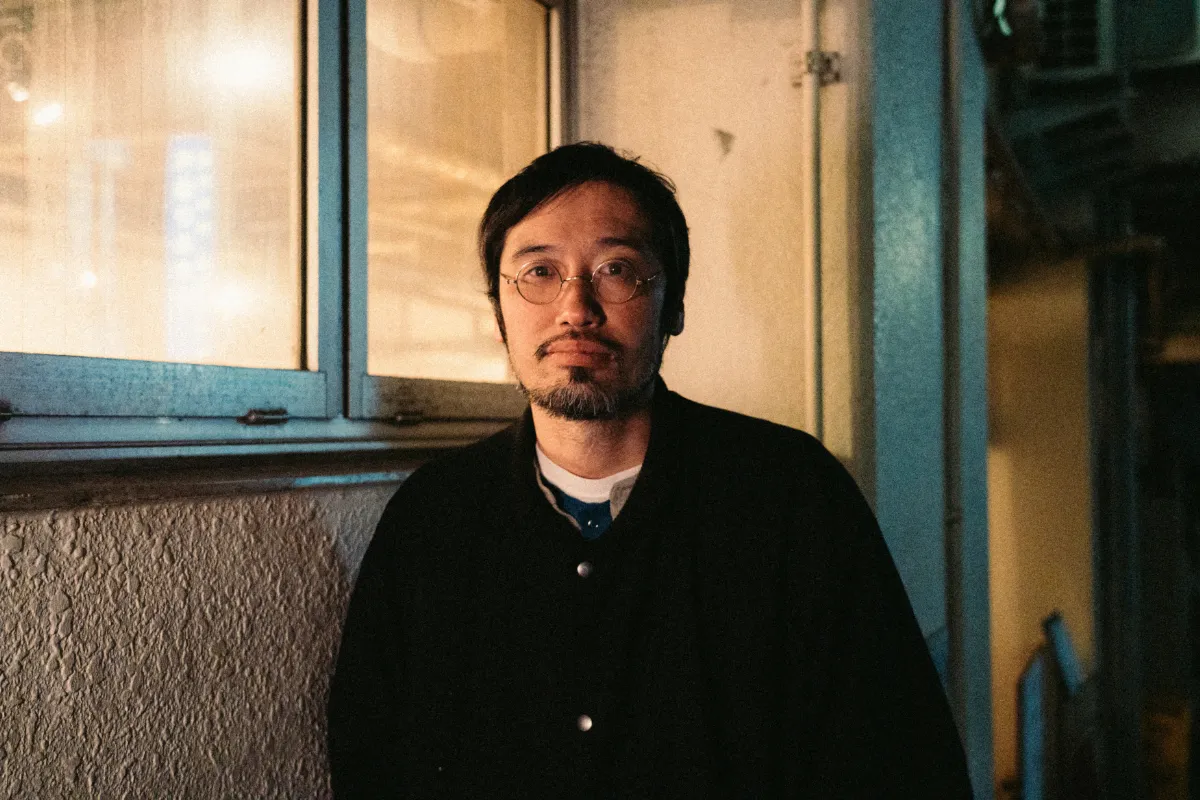
Born in 1981 in Fukushima Prefecture, Rikiya Imaizumi is a film director. He made his commercial film debut in 2010 with Tamano Eiga and has since released a series of acclaimed works, including Sad Tea (2014), Say Goodbye to the Days of Boredom (2017), Just Only Love (2019), Over the Town (2021), and Call Me Chihiro (2023). His latest film, Undercurrent, was released on October 6, 2023.
INDEX
On “Tomodachi no Uta“: “Every word in the song speaks to feelings we genuinely know.” (Imaizumi)
It sounds like you had some reservations, Imaizumi, but how did the members of Zutto Mayonaka de Ii no ni. react after seeing Winter Morning?
Yoshida: When performing this song, there’s a very specific scene in my mind—certain places and moments that help shape the track. But I never really considered the emotions of the people in that scene. I had always thought that the imagery I envisioned dictated how the people in it would feel. But after watching Winter Morning, I realized it might be the opposite—that the feelings people carry influence the environments around them. Maybe the “small cabin found after wandering in exhaustion” from the lyrics, or the izakaya and love hotel in Winter Morning, are just reflections of those emotions.
When a song is released, it inevitably opens up many new interpretations, but this experience felt like I had received the right answer right from the start, and that was really gratifying. Sorry if I sound a bit presumptuous.
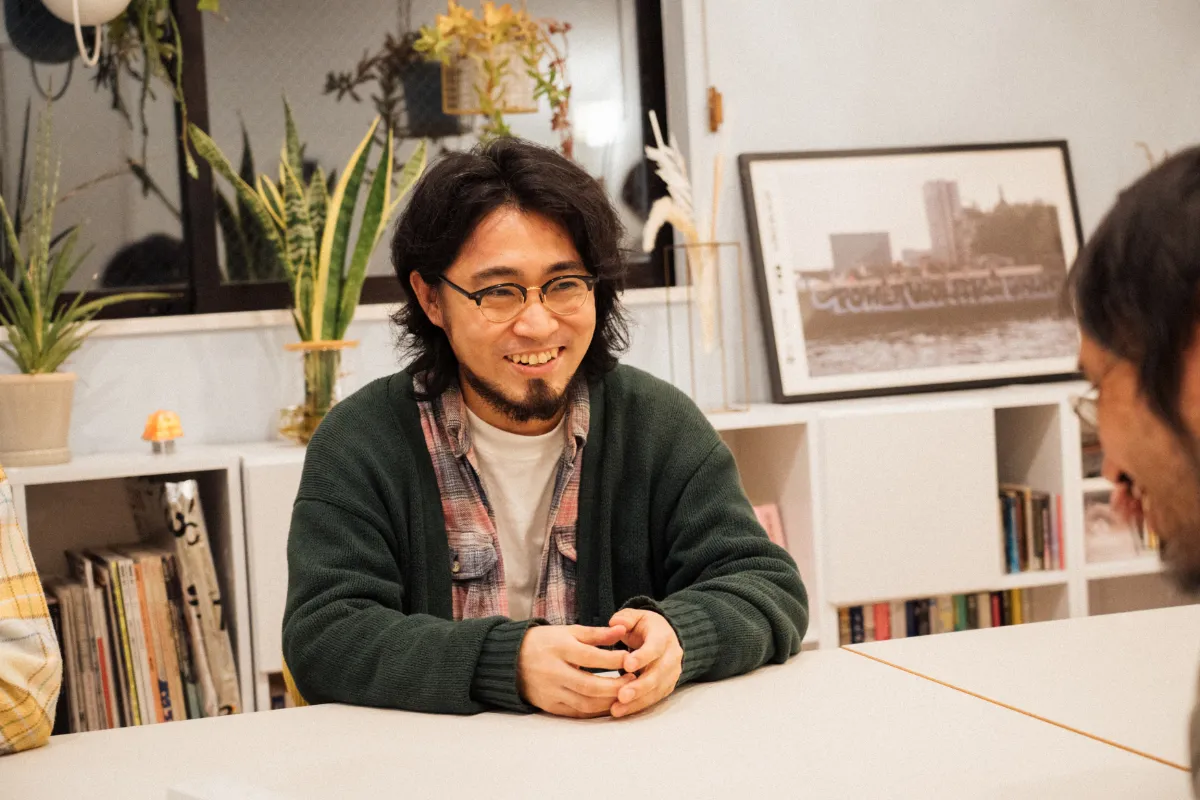
Imaizumi: No, no. Thank you.
Yoshida: One of the reasons I started making music was because I wanted to hear my own songs playing from someone else’s Walkman. Watching this, I was able to feel that meaning again. It’s like, “It’s my song, but it’s also your song.”
Imaizumi: Whether it’s music or film, I think it’s a good thing that people interpret them differently when they experience them. When it comes to making movies or dramas, I question the idea of universal empathy. Rather than everyone feeling the same way, I want to allow room for deeper, personal interpretations. For example, in a movie theater, the person sitting next to you might not understand it at all, but you might feel like you get it in a way that’s uniquely yours.
How did you feel, Wasumi?
Washimi: I thought it was interesting how I couldn’t quite figure out who the protagonist was. Instead of rooting for one particular person, it was more about asking myself, “What kind of person is this? How should I view them?” As I continued watching, my perception kept shifting.
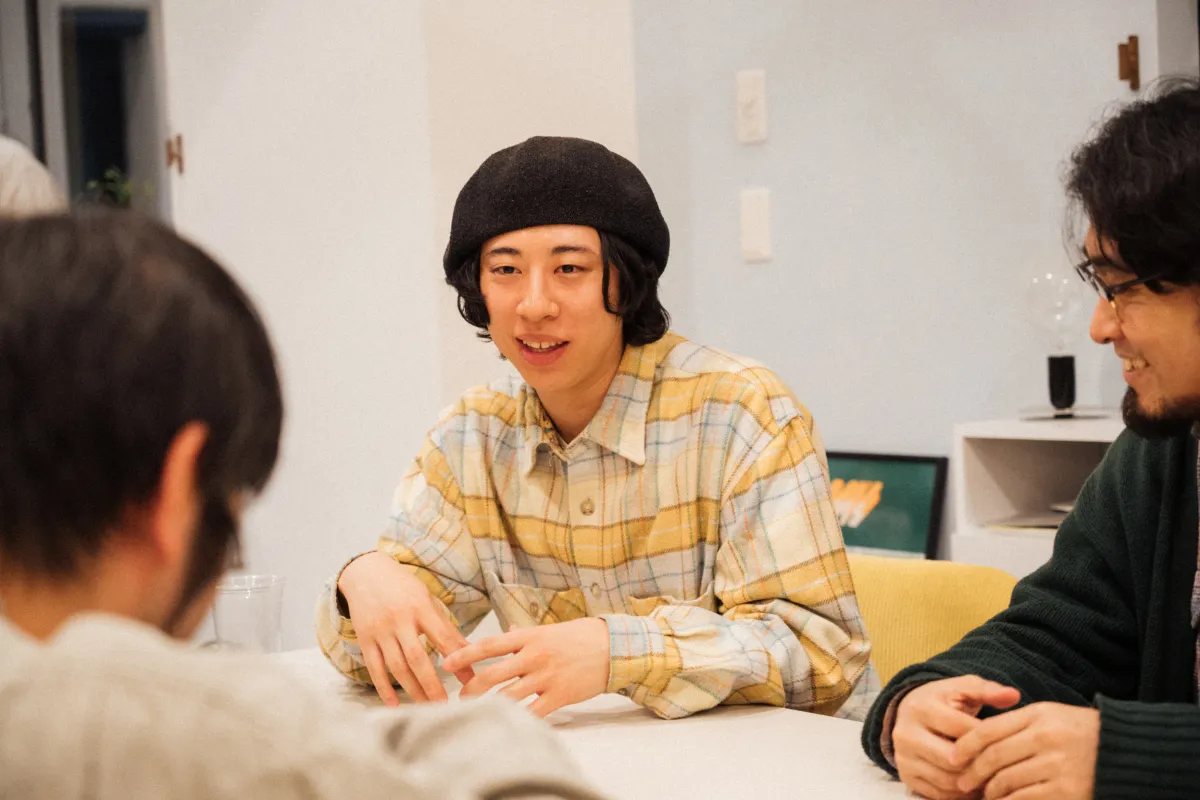
Imaizumi: I’m glad to hear that. I was intentional about the shift in the protagonist. In Winter Morning, “Tomodachi no Uta” plays twice. Originally, the script only had a scene where Miho and Tanabe are smoking, but on set, the cameraman suggested shooting the final scene in one continuous take. That’s when I thought, “This might be the moment to play the song.” During editing, I couldn’t decide between using the song in both places because both moments felt equally compelling. When it played in the final scene, it felt like the protagonist shifted in that instant. I think that’s how it is with one and one—depending on the situation, the other person in the song changes.
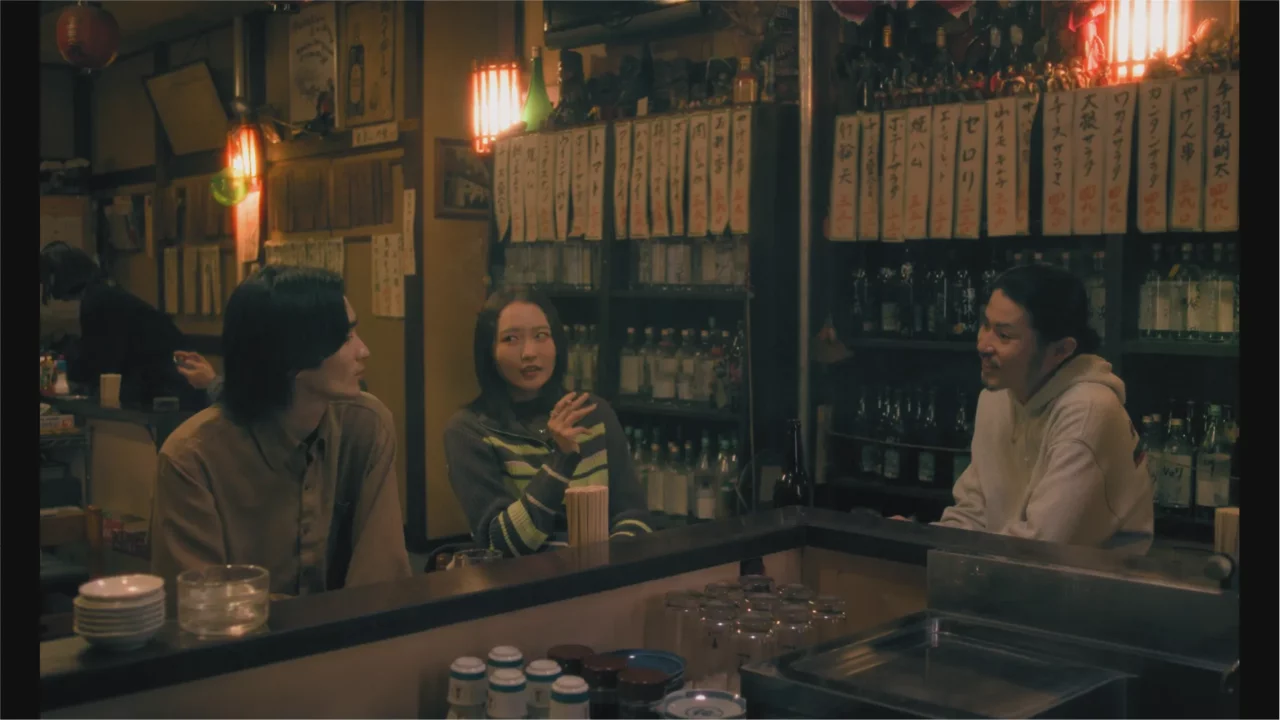
Yamagishi: I think the line at the beginning, where Miho and Tanabe discuss how “it’s impossible to express feelings with words,” serves as a central theme throughout the entire story. It’s not that it’s impossible to put feelings into words, but rather that once you do, they become trivialized. I felt like the three of them were experiencing that. It’s the same when you try to put your feelings about music into words.
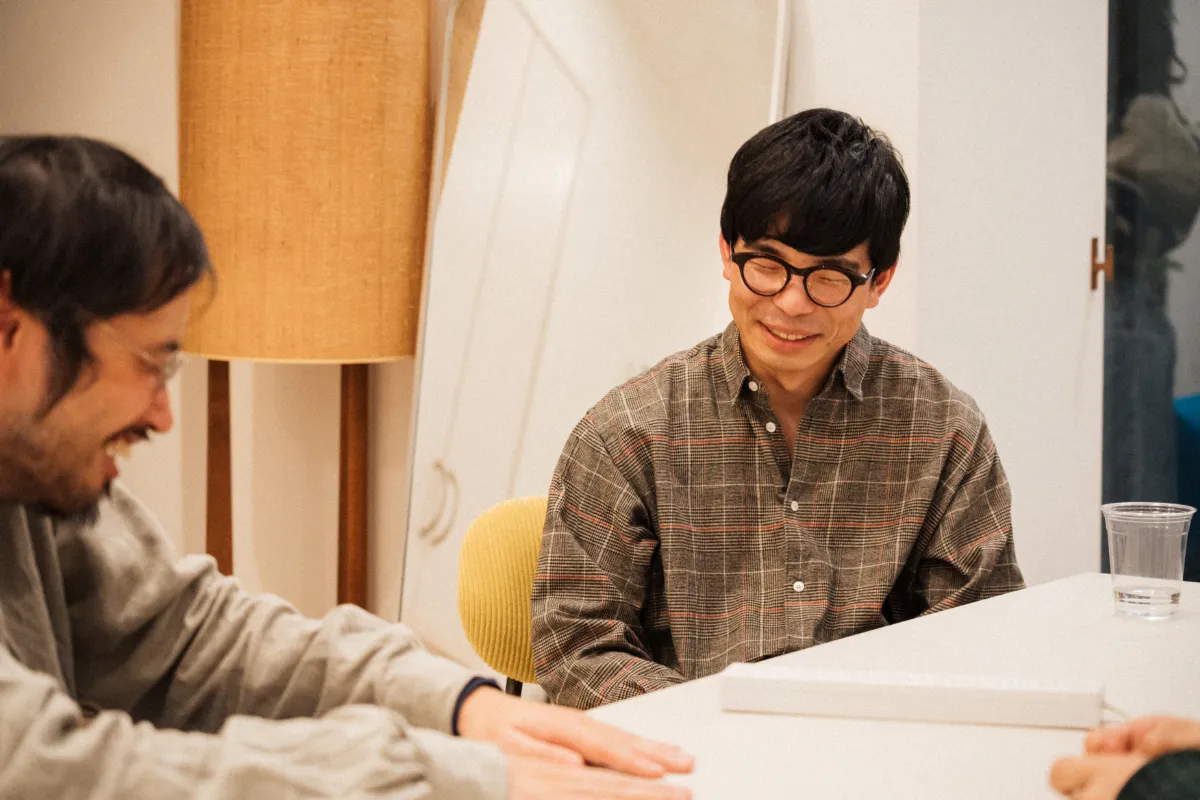
Imaizumi: When it comes to whether or not to explain things with words, I really feel that the lyrics of Tomodachi no Uta express the emotions of this film perfectly. I absolutely love the lyrics. It’s the same when I write dialogue—while I don’t use anything particularly special, I choose words from a variety of options that feel like the only words for the moment. The song is made up of words that only speak to feelings we truly understand. So when the song plays in a scene where the characters are just smoking without any dialogue, it feels like the lyrics flow through their hearts.





